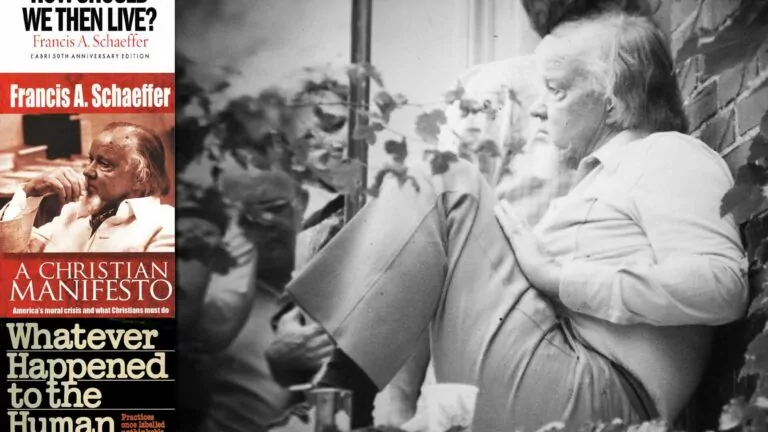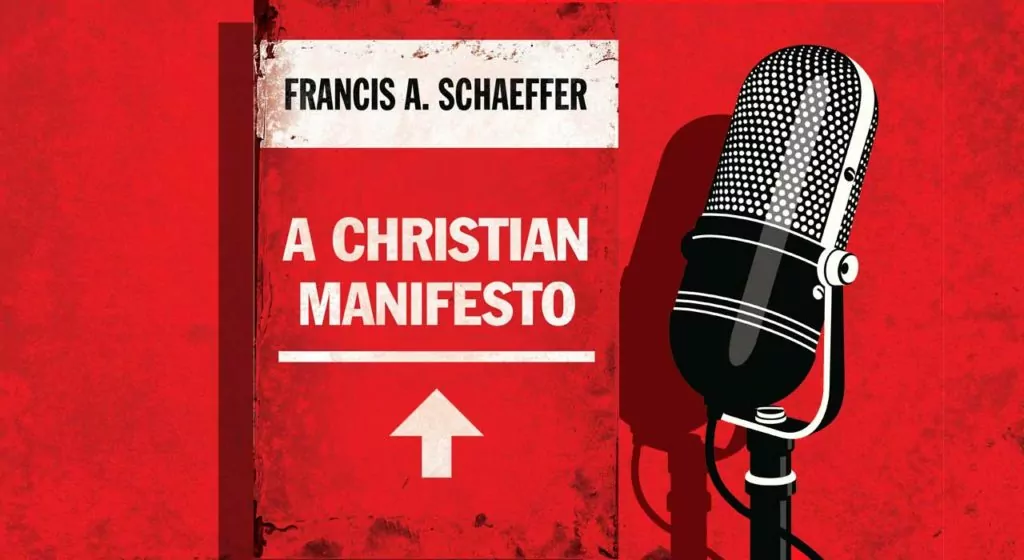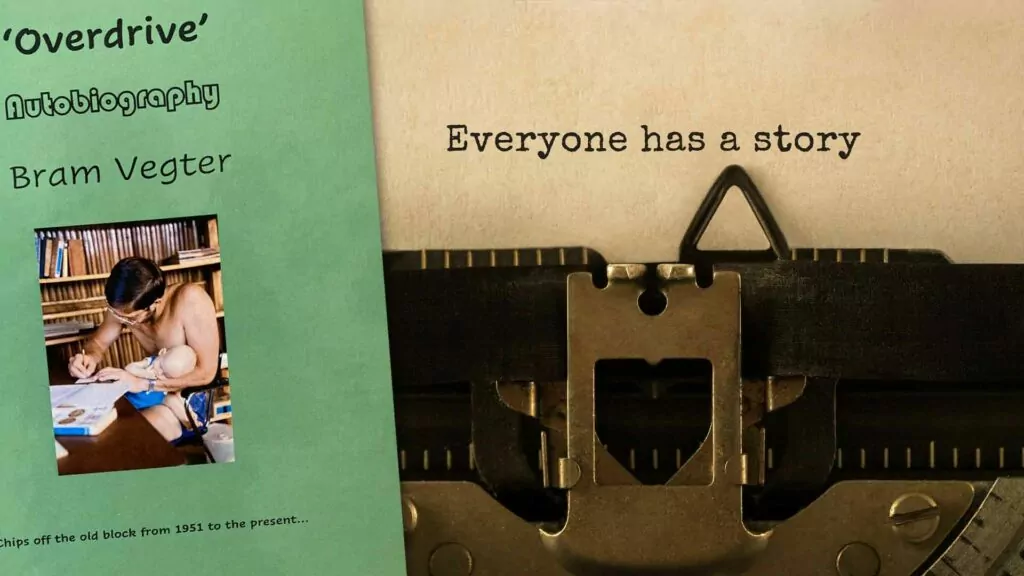During the late 1970s and early 1980s many conservative Protestants in the United States became involved in social and political activism for the first time. The movement emerging out of this activism is often referred to as the “Religious Right” or “Christian Right.”
While a number of factors combined to produce this phenomenon, one of the most important was a theological shift. Conservative Christians who had previously avoided any form of activism came to believe that they had a duty to speak out on behalf of Biblical positions regarding social issues. More than any other individual, a Presbyterian pastor named Francis Schaeffer was responsible for this shift.
A recent book by Barry Hankins, Francis Schaeffer and the Shaping of Evangelical America (Eerdmans, 2008) provides a good overview of Schaeffer’s life, work and influence.
Reformed foundation
Francis Schaeffer was born in 1912 to a nominally Christian family in Pennsylvania. As a young man he converted to Biblical Christianity as a result of hearing an evangelist. After completing college he enrolled in Westminster Theological Seminary in 1935. In 1937 Westminster Theological Seminary split, and a number of professors and students left to form Faith Theological Seminary. Mirroring this split, the Orthodox Presbyterian Church had a rupture, with a number of people leaving to form the Bible Presbyterian Church. There were a number of issues involved, one of the most important being eschatology. Those who formed the new seminary and new denomination were premilleniallists, and Schaeffer was among them.
After completing seminary, Schaeffer became a very effective Bible Presbyterian pastor in St. Louis. In 1948 he moved with his family to Switzerland as a missionary under the auspices of the Independent Board for Presbyterian Foreign Missions (IBPFM). To make a long story short, Schaeffer’s relationship with both the Bible Presbyterian Church and the IBPFM deteriorated. He left both organizations. (Ultimately he joined the Reformed Presbyterian Church, Evangelical Synod which merged with the Presbyterian Church in America in 1982.)
Come and question!
In 1955 Schaeffer formed his own mission group called L’Abri, the French word for shelter. It was basically a small community in Switzerland that would receive guests who had questions about Christianity and life in general.
L’Abri was very effective and gradually emerged as an influential evangelical organization. People came from all over the world to learn about Christianity from Francis Schaeffer. Many people became Christians in this way, while many who were already Christians had their lives and careers paths changed in a positive direction.
Schaeffer’s ministry focus was on demonstrating that only Christianity provided an answer to life’s questions and problems. Schaeffer could explain why the popular philosophical movements of the mid-twentieth century were deficient. Doing so provided an avenue for presenting the Gospel. As Barry Hankins writes,
“Apologetics had two purposes for Schaeffer: the first was defense of the faith, and the second was to communicate Christianity in a way that a given generation can understand the message.”
L’Abri, however, was not just about providing intellectual answers from a Christian perspective. It also provided shelter and care for people who were having personal problems. The love and care provided by his ministry substantially increased Schaeffer’s credibility and his esteem among believers and unbelievers alike. Hankins notes, “Schaeffer taught that the ‘final apologetic’ for the Christian faith was the fulfillment of Jesus’ command that Christians love one another.”
A wider audience
Schaeffer would speak to people individually about their questions and concerns, but he would also lecture regularly. By the end of the 1950s, many of the lectures were being taped. Gradually, an audience for these taped lectures spread throughout the world.
“By 1968, there were Schaeffer listening groups across the U.S. and Canada, as well as in Taiwan, Japan, India, South Africa, France, New Zealand, Australia, and nations in South America”
Even before 1968, however, Schaeffer’s influence was being noticed. Hankins records that, “His growing popularity was noted in a 1960 issue of Time magazine.”
As a result of his increasing notoriety, Schaeffer began lecturing tours, first in Britain and later in the USA. These lectures were very popular. Many were subsequently published in book form and this caused his fame and influence to spread even further.
Schaeffer was teaching evangelicals about modern philosophical trends and how they related to Biblical Christianity. This had not really been done before, so Schaeffer was on the cutting edge of Christian cultural analysis for English-speaking conservative Protestants. “To whatever extent evangelicals by the mid to late 1970s were analyzing culture instead of rejecting it, Schaeffer was largely responsible,” Hankins argues.
By the mid-1970s Schaeffer was so well-known that he became acquainted with some American politicians and was even hosted at the White House by President Gerald Ford.
Pivotal books
In 1973 the US Supreme Court ruled in the infamous Roe v. Wade decision that women had a right to abortion. This was a momentous decision and Schaeffer began to speak out increasingly for the pro-life cause. Actually, he was the most prominent evangelical leader promoting the pro-life cause because so many evangelicals during the early to mid-1970s were ambivalent about this issue.
In 1976 Schaeffer (with substantial help from his son Franky) produced a book and film series called How Should We Then Live? that described the decline of Western Civilization due to the rise of secular humanism. It was an effective combination, introducing many conservative Christians to worldview thinking for the first time.
Then in 1979, he produced another book and film series called Whatever Happened to the Human Race? that presented the Biblical position on abortion and other life issues. This book and series had a major impact in activating evangelicals into the pro-life cause.
Schaeffer’s influence continued to increase. In 1981 he wrote a book called The Christian Manifesto, demonstrating that secular humanism was replacing Christianity as the basis of the United States. If Christians did not resist this trend, he argued, it would only get worse. This book is arguably one of the most important ever produced by the Christian Right.
Then in 1984, he wrote The Great Evangelical Disaster, which criticized a trend among some evangelical leaders to question the inerrancy of the Bible. If these men continued in that direction, Schaeffer warned, they would soon be embracing theological liberalism. He called on conservative Protestants to continue to defend the Bible as God’s inspired and inerrant Word as his last message to the church. In the same year this book appeared, he died of cancer.
No coincidence he was Reformed
Hankins notes that Schaeffer’s
“attempt to alert Christians to the need for intentionally and self-consciously forming a Christian worldview based on solid Christian presuppositions was the central part of his intellectual project.”
This continues to be a major component of his legacy.
It’s important to recognize that Schaeffer’s theological background provided him with the intellectual tools to confront popular culture from a Biblical perspective.
“His training within the Reformed branch of American fundamentalism by scholars such as J. Gresham Machen and Cornelius Van Til served him well in this regard.”
Reformed theology provides the most robust Christian challenge to our modern secular culture and it was foundational to Schaeffer’s own ministry and success as an apologist.
Photo by Dr. Gary Lee Todd, taken sometime in 1981 (Flickr.com/public domain).















